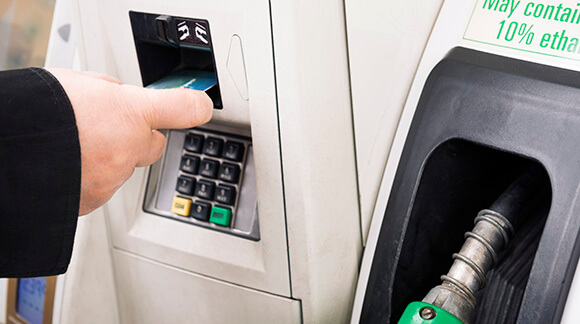How your business can prevent fleet fraud
05/08/2020 00:00:00by Mark McKenna05/08/2020 00:00:00How your business can prevent fleet fraudBluedrop Services


If your business has been affected by fleet fraud, then you will know how costly it can be. Fleet fraud can impact many businesses, from those with as little as 3 to as many as 500+ vehicles.
Although over the past few years' systems have become more sophisticated in tackling fraud, there are still cases where fraud is an issue. This article, provided by Mark McKenna of Bluedrop Services Specialist Fleet Insurance Brokers, will provide you with advice and tips to use in your fraud prevention strategies, focusing on the misuse of fuel cards and staged accidents.
How is my fleet vulnerable to fraud?
There are a few different types of fleet fraud, staged accidents and fuel card misuse being the main ones. Although staged accidents do still happen, more affordable dashboard cameras that record incidents have reduced the number of claims.
If your fleet doesn't have dashboard cameras, you will need to do thorough background checks on your drivers to find out the following: If the driver has a history of accidents under similar circumstances, if they're familiar with the claims process or if there's an overly enthusiastic witness at the accident scene.
Another costly form of fleet fraud is fuel cards. These cards help monitor fuel spend on individual vehicles to implement effective strategies to improve performance and cost. Fuel cards have many benefits for managing your fleet, but they are also open to fraudulent activity.
Fuel card fraud
There are many different ways that fuel cards can be used for fraud, such as being lost or stolen, application fraud, counterfeit card and card not received fraud.
If the driver loses the fuel card or if the card gets stolen, the driver must report it immediately. To stop this type of fraud, the driver must keep the card in a safe place, separately from where they have the PIN number saved. The same procedure should be taken if a new card does not arrive.
Application fraud is where either a group or one individual impersonates a business to open an account by using fake or stolen documents. If the application is successful, then it allows the group or individual to have access to multiple accounts, these accounts can operate until the first invoice arrives, giving them time to use the card before the invoice is due.
How can I prevent fleet fraud from happening?
1. Implement fuel limits: Most fuel card companies should give you the option to limit the daily or weekly spend on fuel cards to prevent employees taking advantage of the cards and using them for payments that aren't for fuel.
2. Educate drivers on how to protect their fuel card from theft and cloning: To prevent theft and card cloning, you should educate your staff to keep their card safely on their person, by either remembering the PIN number or keeping the PIN number in a safe place away from the fuel card.
3. Regularly check invoices and receipts to ensure all payments are legitimate: Each month you should check that all invoices match the receipts submitted by the employees. Doing this will highlight any areas where there may be fraud.
4. Write or update company policies and procedures: You will need to check that your policies and procedures are up to date with driver behaviour rules and explain what to do in the event of an accident.
5. Drivers agreement: You should also have a driver’s agreement, this can be a signed document for all drivers to sign so that they are aware and have understood the consequences of any misconduct when driving a company vehicle. Having a signed copy of this agreement will cover your business from any disputes as well as discourage fleet fraud.
6. Driver history checks: When employing a new driver, you should conduct thorough background checks to confirm they have the relevant documents to drive; this should raise any previous claims or driving convictions. Proof of accurate driver records can feed into lower claims ratios and premium reductions with your insurance company.
7. Vehicle inspections: Performing regular vehicle maintenance inspections will highlight any careless damages to the vehicle and enable you to see a pattern if it involves the same driver. This will demonstrate your commitment to preventing accidents and fleet fraud.
8. Disciplinary action: Make it clear that there are serious repercussions of reckless driving and vehicle and fuel card misuse, resulting in legal action and potentially employment termination. If you show you are taking these issues seriously, it is less likely these instances will occur.
9. Reward programme: Rewarding good behaviour and good driving can increase engagement and motivate drivers, which will have a positive impact on your employees.
Following these steps will help reduce the amount your company loses on fleet fraud. If you require further advice on fleet fraud or are on the market for fleet insurance, you can contact one of our advisors here.
Return to blog menuWant to find out more about Bluedrop's Motor Fleet Insurance?
Call our friendly team now for the right insurance cover - at the best price
+441489780491
Calls recorded for training and quality.



 Privacy and Cookie Policy
Privacy and Cookie Policy